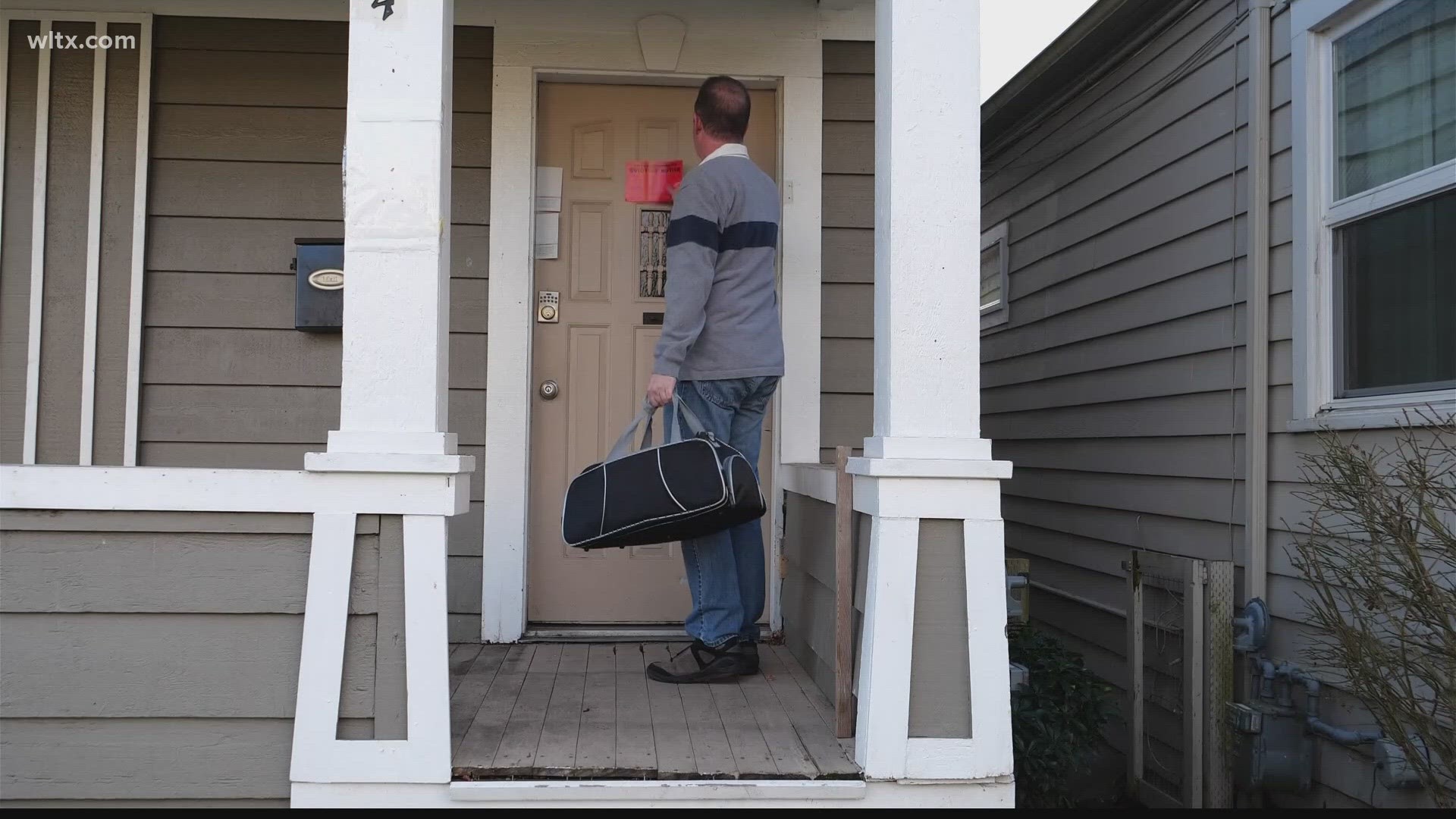COLUMBIA, S.C. — According to new data from the Civil Court Data Initiative, landlords have filed 400,000 evictions in the past four years. That leaves room to ask: How does a renter avoid an eviction? And what is and isn't legal in the eviction process?
Bill Cantey, a tenant-landlord lawyer, said that as long as a tenant pays rent, has utilities on, and keeps their belongings in the home, they'll avoid eviction.
The South Carolina Bar said evictions can be triggered by failing to pay rent, the term of occupancy ending, or terms of the rental agreement under violation. Cantey said there are consequences if a landlord bypasses the judicial process and takes action into their own hands.
"They can't bar the tenant from the property and they can't remove the tenant's items. And the tenant has remedies if the landlord does that on it, which can be up to three times the rent plus attorney's fees if the landlord bars the tenant from the property or bars them from services that the landlord's required to provide," Cantey said.
According to this local lawyer, a lease agreement can provide details of an eviction notice, or if it doesn't, the landlord has to send notice and give 14 days to the tenant to pay rent before officially filing an eviction, adding that this eviction notice has to be specific.
"It has to be mailed and it has to be certified mail to the address. Not posted, not dropped off, not handed to them. There's a specific notice provision in the South Carolina landlord tenant law," Cantey said.
After receiving notice, Cantey said that tenants could ask for a court date. But if a landlord moves forward with a writ, he said that law enforcement can remove the tenant and his or her belongings.
"The landlord has the right to come into the house at any time for an emergency, but otherwise has to give the tenant 24 hours notice," Cantey said.
He said an eviction doesn't qualify as an emergency, adding that after an eviction is filed properly, it usually takes about a month for the landlord and tenant to go to court.
Tenants can ensure they know their rights by reading the Landlord Tenant Act. They can also go to their county's magistrate's office for legal resources or find a pro bono lawyer at housing court.

